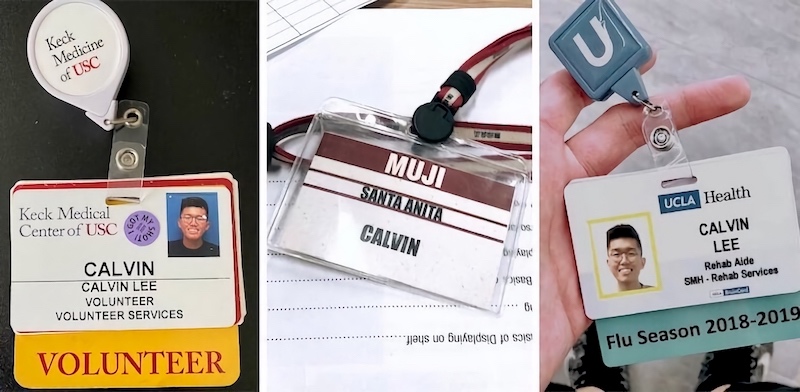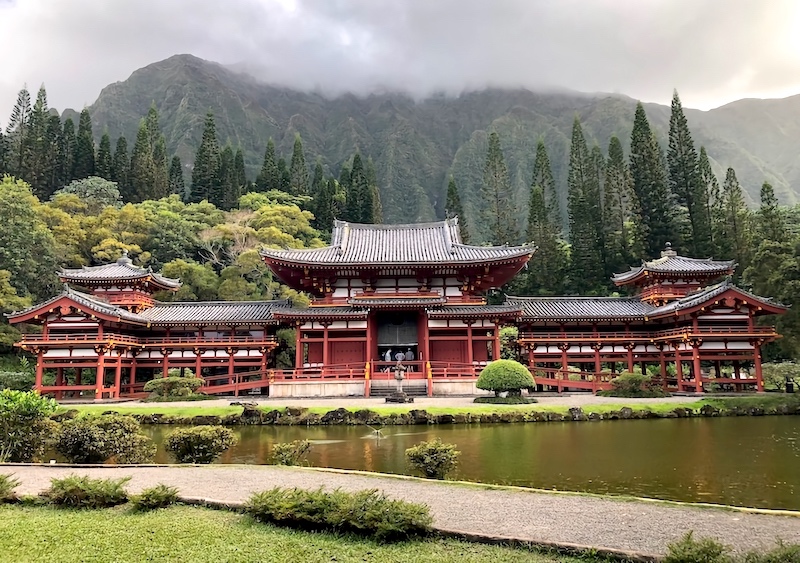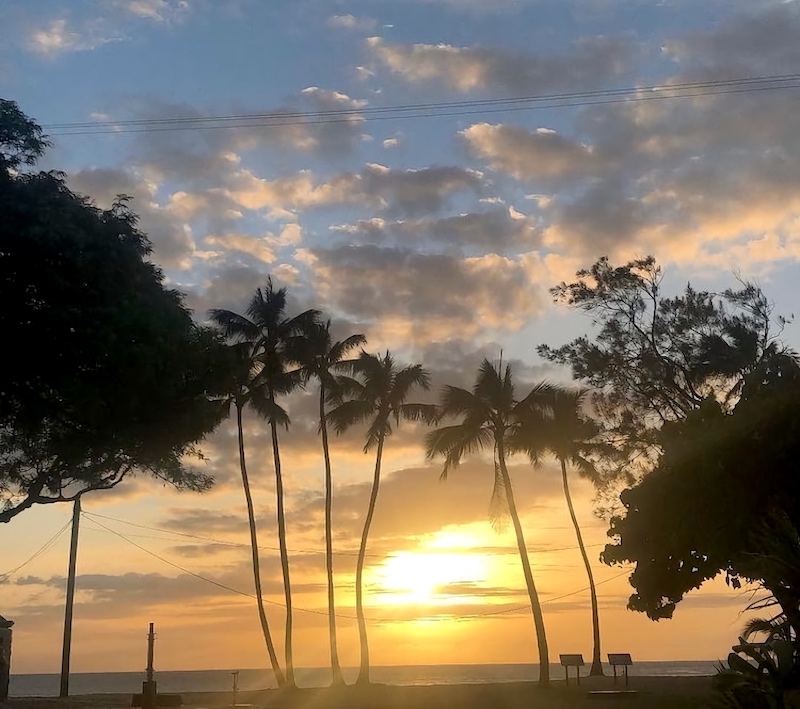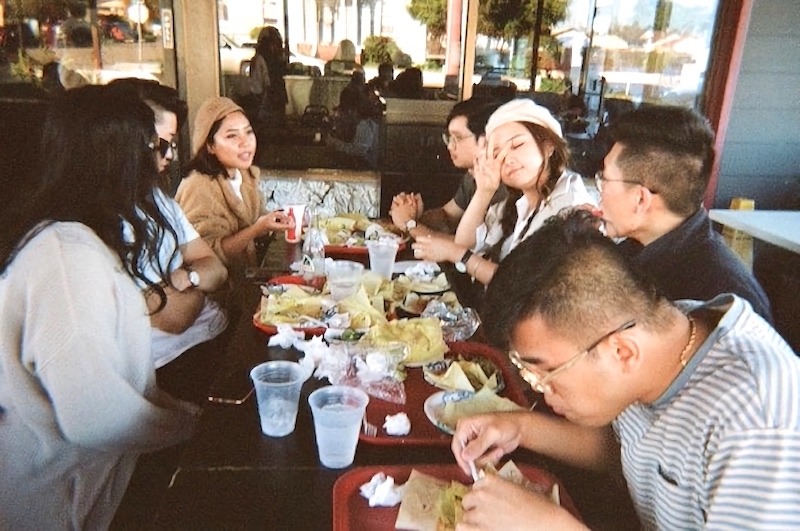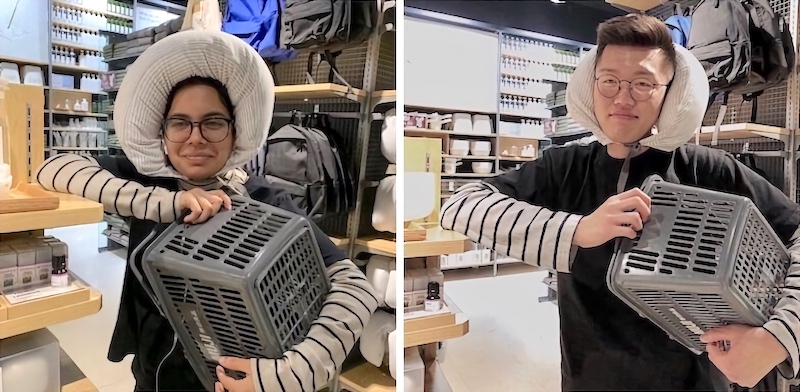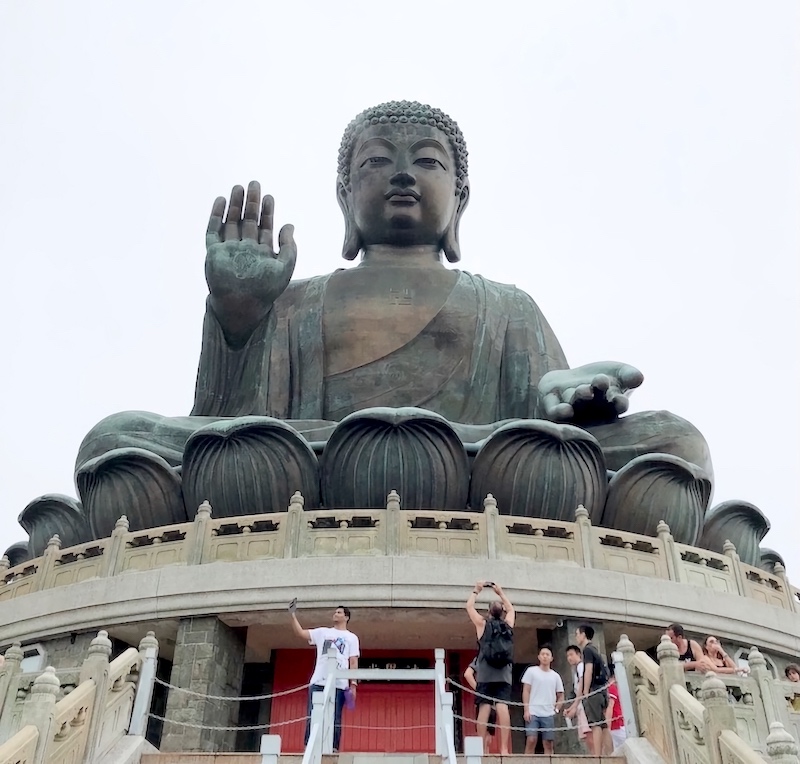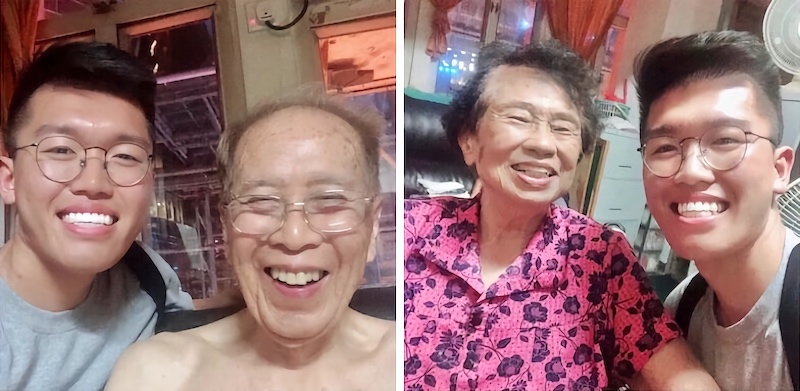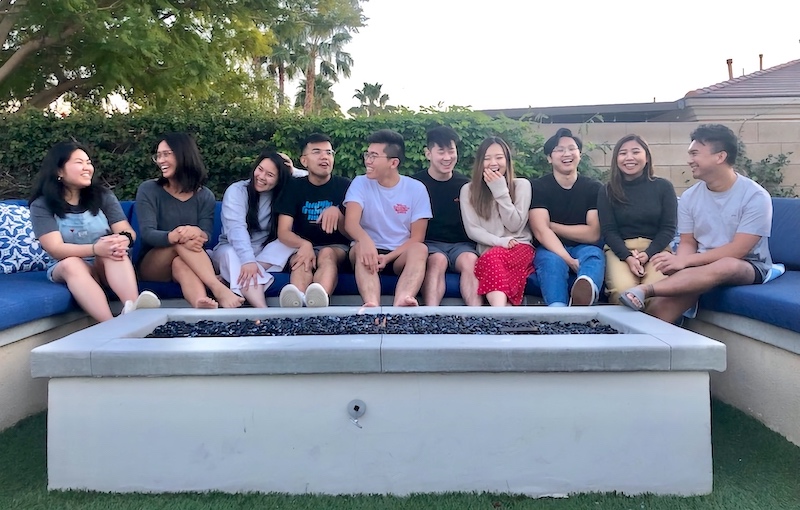Student Blog
Getting Involved
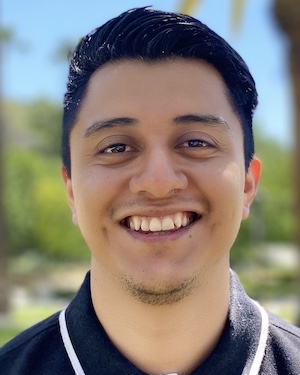
Joining a Growing Number of Latinx Occupational Therapists ⟩
January 5, 2021, by Daniel
Diversity Getting Involved
Recently the American Occupational Therapy Association (AOTA) published the 2019 Workforce and Salary Survey. Based on 15,596 responses (most being AOTA members), in 2018 race/ethnicity of occupational therapists were as follows: 3.6% Hispanic/Latinx, 2.6% African American/Black, 6.3% Asian/Pacific Islander, 0.2% American Indian/Alaskan Native, 1.7% Multiethnic, 1.6% Preferred not to Answer, with the majority of occupational therapists remaining at 84.0% Caucasian/White. Keep in mind that these numbers are based on people who responded to the survey. The United States (U.S.) Bureau of Labor Statistics also compiled data in 2019 from employed occupational therapists that were as follows: White, 75.7%; Black or African American, 10.2%; Asian, 12.4%, and Hispanic or Latino, 10.2%.
The truth is these statistics are not where I or many people would want them to be and they make me feel fortunate to be a part of this small, but growing percentage of Latinx occupational therapists. It is also a reminder that I must continue to push the narrative. In addition to the numbers shared above, I also represent an unknown statistic of undocumented occupational therapists in the United States. The closest statistic I found while doing my research was from the Migration Policy Institute (MPI) tabulation data from the U.S. Census Bureau 2018 American Community Survey, which found that 3.6% of “therapists” in the U.S. are “foreign-born workers”. Yet, there is no true number I can refer to as this number gathers occupational therapists, physical therapists, respiratory therapists, and speech-language pathologists under the term “therapists”, and the term “foreign-born workers” can include undocumented people, undocumented people with Deferred Action for Childhood Arrivals (DACA) status, and a variety of visas. Furthermore, disclosing immigration status is a sensitive topic to disclose on surveys or any type of data collection.
So why is this important you may be wondering? Well, as I have disclosed in a previous financial aid video, I am currently undocumented with DACA status. My entire life has been full of firsts, first person in my family to go to college, first to go to graduate school, and the list goes on. During the process and since officially becoming a licensed OT in California, the firsts just keep coming and as we begin 2021, I foresee many more happening this year. At some point this year I will be completing my Doctorate in Occupational Therapy (OTD) degree and applying for jobs. If someone would have told me this back when I was in high school, I would have not believed it. Back then I didn’t think it was possible to even go to college, much less that one day I would be at USC working on my doctorate degree. This is why the numbers above matter because to have access to even one professional that looks like you or that may come from a similar background can make a huge difference in someone’s decision to pursue a specific program and/or career as it did for me. Furthermore, having representation in the healthcare field for clients from diverse backgrounds is vital to providing the best care possible and better understand client beliefs and values.
This year my life is going to change, and it is scary/exciting as this will be one of the biggest firsts I’ve ever had to experience. The last two years at USC, I’ve had the opportunity to have mentors in the OT profession such as Dr. Celso Delgado, Dr. Jesus Diaz, Dr. Gabby Granados, Dr. Beth Pyatak, and Dr. Arameh Anvarizadeh, to name a few, who have supported me in ways that have made it possible for an undocumented student from Van Nuys to join this group of occupational therapists working to increase representation in our profession and make our communities’ voices heard. And I also want to give a shoutout to some of my classmates, Katie Bui, Marilyn Thompson, and Janis Yue, for also doing the work to increase diversity in OT these last few years and also working on their OTD.
For 2021, I have made two commitments. The first commitment is to become even more engaged in sharing my story and be a mentor to more OT students, applicants, and those interested in this field. The second commitment is to do more community work with organizations across the country such as Coalition of Occupational Therapy Advocates for Diversity (COTAD). These are my initial commitments I have planned this year in order to continue increasing those percentages shared earlier and help create an even more diverse, inclusive, and equitable OT profession. Change is slow but it’s up to us to make that change. If you are a potential applicant, someone interested in OT, or current student feel free to reach out to me! (.(JavaScript must be enabled to view this email address) or 818-571-8222). Let’s network and have these conversations!
⋯
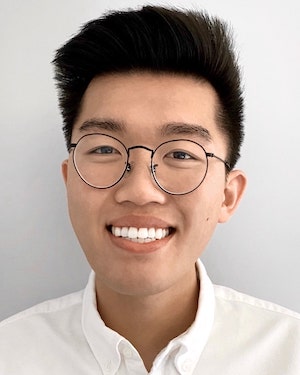
#NoRegrets ⟩
December 28, 2020, by Calvin
Admissions Getting Involved International Life Hacks Living in LA
Since OT school wasn’t an option for me right out of undergrad, I thought, “Well, I guess it’s time for plan B: to take a gap year.” Except, as time went by, it started to feel less like a back-up plan and more like the decision I should’ve gone with all along!
My gap year happened pretty unintentionally, but I’m honestly so glad that I took that time off. After 4 years of undergrad, I felt burnt out! A change of pace was something I needed and taking a year off to rest and try new things ended up serving me really well. It was because of my gap year that I was able to pursue research in another country, visit family and friends back in Hong Kong, travel around the world, build my professional experiences, study for the GRE, and just overall, take a break from school! Even though I wasn’t on vacation 24/7, my schedule definitely allowed for a lot more flexibility. I also want to emphasize that taking time off before heading to graduate school is completely normal. I might even suggest it because it gave me the time to reflect, mature, and refocus my goals.
I know what it’s like to feel the pressure of securing something for yourself after undergrad. I also know what it’s like when that doesn’t work out. Not knowing what’s going to happen next is a scary thing, but it’s also an opportunity to challenge ourselves and grow in ways that we might not have imagined before. So, do what you need to do before starting grad school, and know that you don’t need to jump into it right away. Take the time to think about what’s best for you and your future.
My Gap Year Memories in Photos
⋯
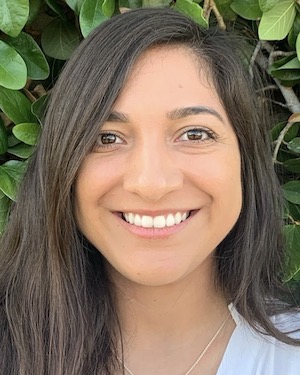
Working with the Community ⟩
December 21, 2020, by Liz
Diversity Getting Involved
In one of my previous blog posts I shared a little bit about the community program that my colleague, and one of my dearest friends, Stephanie and I are leading together. The program is called Vivir Con Diabetes, and was initially developed by another occupational therapy student, David, as a part of the Albert Schweitzer Fellowship. In efforts of continuing the program, he mentored our very own Daniel Padilla, who then continued running the sessions the following year in collaboration with his colleague, Ceci. As you may all know, Daniel is now an OTD student and taking on other things as he works towards becoming Dr. Padilla. His colleague Ceci is also working on obtaining her OTD and is busy as she completes her residency at CHLA’s UCEDD. So now this year, Stephanie and I are running the program’s sessions.
To give you all more background, Vivir Con Diabetes is a program designed to support the Spanish-speaking community of Boyle Heights as they strive to make lifestyle changes in order to improve their diabetes management. Our goal is to implement culturally sensitive interventions as we support them in achieving their goal of better managing their diabetes. Our program site is the LAC+USC Wellness Center, which our participants are very familiar with because they utilize some of their other resources. I get a lot of questions from prospective students like “What kind of work do you get to do directly with the community?” “What are other ways to stay involved besides student organizations on campus?” “What kind of work do you directly get to do with the Latinx community?” Well, this is one of those ways in which I stay connected with my community all while using an OT lens.
Normally these sessions are held in person, but given the current situation we have been hosting them online. There are three sessions that take place Saturday mornings and are each 45 minutes long. It sounds like a long morning, but they really fly by! As we were discussing what we would be covering during the sessions and how they would be structured we had a few things to think about: would everyone that was interested in joining our classes have access to the internet? A computer? A cell phone? We really got to think about how much of an impact COVID-19 has had on our community, especially those who would come in-person to the Wellness Center with the goal of learning more about how to be more directly involved in their own health and care. Most of our participants tune in using their cell phones. Because Stephanie and I log in using our laptops, we had to learn a little more about how to instruct and guide our participants to unmute/turn their cameras on/off on their phones.
Stephanie and I touch on different topics every week and make sure that we relate them back to our participants’ diabetes management. We talk about things like:
- Sleep hygiene
- Chronic pain
- Stress management
- Physical activity — two weeks ago we did Zumba for 20 minutes, which was a hit!
- Communicating with one’s provider
- Mental health
These are just a few of the topics we cover, and as I mentioned before we always tie the topic back to diabetes management. For example, how does the stress created by family members and your provider affect your ability to manage your diabetes? How does the pressure of keeping your A1c levels low affect how you feel about yourself? How does it affect your relationships? Because our participants are Spanish-speaking and there’s already a low number of Latinx providers that they can relate to, our participants really love to share and talk to a group of people that understands — people that they can relate to.
I should mention that Stephanie and I aren’t just creating these lessons off the top of our heads! We get feedback from Dr. Diaz on our session outlines every week before introducing any content to our participants. Which brings me to my next point — mentorship. Aside from being able to work with the community, participating in this program has provided me with some great mentorship from Dr. Diaz. He continuously supports Stephanie and I by meeting with us on a weekly basis to go over our session outlines, any challenges we faced at our sessions, and also shares a ton of resources with us!
All in all it’s been such a great experience to be a part of this program. It’s something that I wish would have been available to help my grandmother with her diabetes management, and something that I think really makes a huge difference for our community in general. Speaking from my grandmother’s experience, she didn’t quite understand what it meant to have diabetes, didn’t know that there were so many lifestyle changes that could have helped her manage it, and also didn’t really feel comfortable asking her provider questions because she didn’t speak English. So, I am really passionate about supporting my community in any way possible.
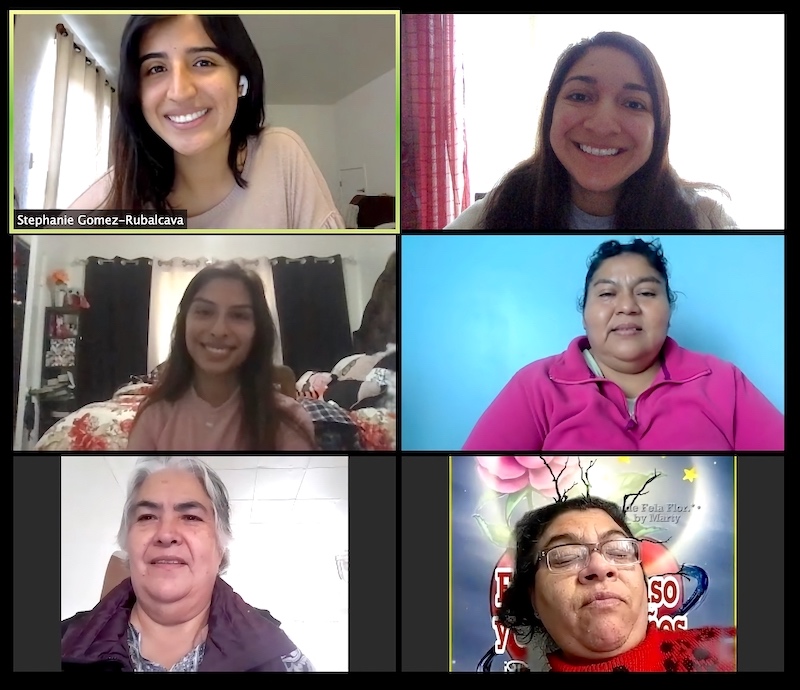
This past week was our last week of sessions for the semester. Here we are with some of our lovely participants from the 9 AM session! This photo was shared with participants’ permission.
I hope this was helpful for learning more about other ways in which you can stay involved and make a difference in the community. Please feel free to reach out to me if you have any questions about the program or about the Albert Schweitzer Fellowship! I would be happy to walk you through that application if you’re interested in applying for the following year. Fight on and happy holidays!
⋯
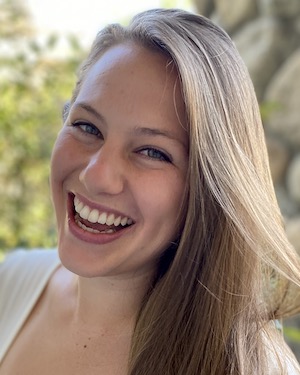
Overcoming Rejection and Feelings of Inadequecy ⟩
December 9, 2020, by Savi
Classes Getting Involved Life Hacks
As my last semester of classes has come to an end, I had anticipated feeling relieved. I now sit here, having passed all of the courses I need to graduate from this Master’s program, feeling immensely overwhelmed and discouraged. Up until this moment, everything had been mapped out for me. Each class that I would take and when I would take them were pre-determined. I knew that I just had to work hard and do my best in order to be successful academically.
I am currently studying for the COMPS (comprehensive exam) that I will be taking on December 15th with the rest of my graduating class and I am worrying about my future. This future is not pre-determined and it is scary, especially amidst a global pandemic. It is up to me to pave the way.
During this hectic time, I have also decided to pursue my OTD. After going through the interview process for the USC Chan Division residencies and being informed that I did not receive one, I felt extremely discouraged. I took this rejection as an indication that I was not good enough to get the opportunities I had been aiming for. I became anxious over the fact that I would have to find my own residency, especially because I was worried that my lack of experience in my field of choice would prevent me not only from getting a residency but also a fieldwork II experience.
This stress and feeling of inadequacy was something that was difficult to overcome. After sitting back and reflecting, I came to realize that I was letting one rejection skew my view of my self-worth and capabilities . . . just one rejection held that much power over me!
It wasn’t until I realized that if I didn’t believe in myself then who would!? I decided that if I didn’t try my best to go after the positions and experiences I feel like I deserve and want then I would regret it tremendously. I couldn’t let one rejection deplete my confidence and I knew that even if there were more rejections to come I would learn from them and keep moving forward.
I spent the coming weeks being polite and persistent. I began communicating with people who could help me develop the residency position of my dreams. Putting all the pieces together was tricky, and it took a lot of persistence to progress things further. Advocating for myself and my worth was key in progressing things forward, as well as acknowledging the work and effort the people communicating with me were putting in.
Your future is what you make of it. Be persistent, confident, understanding, and kind. Know that the person you are talking to will never know the mark you can make if you don’t advocate for yourself and your worth. Don’t let rejection take a toll on you. Sometimes putting in the extra work to make things happen really pays off! Advocate for yourself and believe in yourself because no one can do it better than you.
⋯

My Work as a Student Ambassador Part 1 ⟩
December 3, 2020, by Liz
Getting Involved
Ever since I attended my first information session for USC’s OT program being a student ambassador seemed so cool! My interest in applying for a position was largely influenced by how great my experience was with my assigned student ambassador, Melissa. I appreciated how approachable she was and how willing she was to answer any questions I had. She responded to my emails very promptly and overall made me feel very supported as I waited to begin my first summer session.
The opportunity to apply for the position presented itself my first year during the spring semester. One of my favorite professors of all time, Dr. Celso Delgado Jr., told me about the position and encouraged me to apply. So, I went for it! It was definitely nerve wrecking because many of my peers were also applying, all whom I thought were also great candidates. After a bit of waiting, I was lucky enough to find out I was one of the students who had been selected. Woo!
Being a student worker through this position has been challenging, but manageable. This fall I worked 10 hours a week, but luckily because of everything being remote I was able to complete a few of my hours over the weekend and later on in the day. This position has also challenged me to stay organized. I have had to make sure to prioritize my school work, get work done for my fellowship, and also balance my personal life on top of working on my student ambassador duties. It’s been difficult at times, but I am grateful to have a wonderful team to lean on when I need help.
Every member of our team takes the lead on different projects, but we all work together as one to make sure our goals are met. Here’s a little bit of what I’ve done so far:
1. Write blogs!
Part of what I do is share my experiences as an OT student by writing blog posts. Our entire team does it! This is an awesome way for people who are interested in our program to learn about different people’s experiences and to connect with those whom they feel may have experienced similar challenges (e.g., being waitlisted, first-gen students).
2. Attend/assist during information sessions
You may have seen some of us if you’ve attended an information session before. Part of what I do is attend these sessions to answer questions as they relate to the student experience for students who are interested in applying for our program. It’s always so fun getting to know all of you!
3. Connect with current and prospective students
You may have also seen us on our website — we’re here for you! I stay in touch with current students to answer any questions they may have about certain classes/electives, how to best prepare for exams for classes I’ve taken before, or simply to listen and support during stressful times during the semester. I also stay in touch with prospective students to support them as well. My goal is to make prospective students feel welcome and provide guidance as they apply for our program!
4. Get OT’s name out there at grad fairs
Another thing that I do is attend different grad school fairs. At these fairs I present on our program and get OT’s name out there. Sometimes students who are already interested in OT attend, but students who have no idea what OT is will also come to our booth to hear more about it. My goal here is to convert the whole world into future occupational therapists! Just kidding, or am I? During these presentations I also share about my personal journey to finding OT. I answer different questions students have about occupational therapy/occupational science, about our program, about my experience as a first-generation, underrepresented student, etc. You name it, and I will answer it!
5. Support admissions
As you may know, the deadline to apply to our Entry-Level Professional Master’s Program just recently passed. We get hundreds of applicants, which means the admissions team has a lot of applications to read through as they decide who will be admitted. So, something I’ve done this year is help make that process a little easier for them. I’ve helped put together student applicant files, so that when admissions goes through to read everyone’s application everything can be ready and organized for them.
6. Bring new ideas
This year I’ve been able to add my own twist to presentations. Continuing to diversify our program is something that I am really passionate about. With that said, I began brainstorming on how this could continue to be done in new ways. An issue that I identified that many first-generation, underrepresented students face is that they simply don’t know about OT at all. For example, they may not have family members that work as/with OTs and they may not have access to or have ever received services from an OT.
I decided that I wanted to find a way to reach out to younger students to expose them to OT and to also serve as an example of someone who has been able to make it to grad school. When I was a younger student I definitely didn’t see grad school in my future for various reasons. So, I decided to collaborate with the AVID program at different LAUSD schools. If you’ve never heard of AVID, it is a program that supports first-generation students, many of whom are low-income, during their journey to obtaining a higher education. As a previous AVID student myself, I thought this would be a great way to reach out to younger students! I am happy that I have been able to bring new ideas to the team as we continue to work towards diversifying our program.
I hope this has given you all a brief glimpse into what I have done so far as a student ambassador. I decided to call this part 1 because the year is not over yet — stay tuned for part 2! As always, if there’s any questions you may have about my position as a student ambassador or anything at all please feel free to send me an email. Fight on and happy holidays to you all!
⋯






